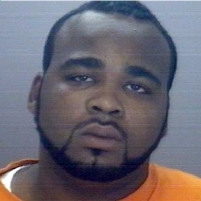Dozens Imprisoned for Violating Non-Existent Federal Gun Control Law
Sunday, June 17, 2012
 Terrell McCullum
Terrell McCullum
Federal prosecutors in North Carolina have been aware for nearly a year that dozens of North Carolinians currently incarcerated in federal prisons should not be there, but they have done next to nothing to help them, and in at least once case are actually trying to prevent an innocent man’s release, according to an investigation by USA Today.
This bizarre, Kafkaesque, nightmare arose over the past nine years, as federal courts in North Carolina misapplied a federal law making gun possession a crime for felons whose prior conviction carried a potential sentence of more than one year in prison. In 1993, North Carolina adopted a new, unique system called “structured sentencing,” which makes potential sentences depend on the individual defendant’s prior criminal record. Thus for the same past crime, two defendants with different criminal records might face very different potential sentences. Nevertheless, for years federal courts ruled that if the potential sentence for a past crime was more than a year for any defendant, then every defendant who committed that crime was legally barred from possessing a gun, and could be convicted of a federal crime and sentenced to federal prison for that.
Last August, however, the U.S. Court of Appeals for the 4th Circuit overturned all those cases, holding that only those defendants whose potential sentence for a past crime could have been more than a year qualify as felons. That means that dozens, and possibly hundreds, of people who did not face a potential sentence of at least one year for their past crimes were convicted and sentenced under an interpretation of the law that was wrong.
To their credit, federal prosecutors soon dropped pending charges against people whose records no longer qualified them as felons, and the 4th Circuit reversed more than 40 convictions that were on appeal at the time. To their shame, they have done nothing to notify inmates whose incarceration is likely illegal, nor do they plan to do so. They argue that “legal innocence,” based a change in the law, differs from “factual evidence,” based on new evidence, even though American law has always stated that court rulings are not changes in the law.
Ripley Rand, U.S. attorney in Greensboro, N.C., excuses their conduct by claiming they are “not aware of any procedural mechanism by which they can be afforded relief,” but that lawyers in his office “have not been pounding on the table” to keep anyone in jail.
Federal prosecutors in Raleigh, NC, however, are “pounding the table” to keep at least one man, Terrell McCullum, in prison even though his prior conviction should not have qualified him as a felon. In September 2007, McCullum was charged with stealing a gun, a crime with a maximum sentence of 10 months. He pleaded guilty and was put on probation. A month later he was arrested for possession of a firearm by a felon and turned over to the federal government. Again he pleaded guilty, but this time he was sent to prison for the first time. In fact, he wasn’t a felon, but even his lawyers didn’t understand the law.
“It’s been tough,” admits Rand, although amazingly he was referring not to the plight of so many wrongly convicted men in prison, but to his office’s struggles with the legal issues involved.
-Matt Bewig
To Learn More:
Scores in N.C. are Legally “Innocent,” yet Still Imprisoned (by Brad Heath, USA Today)
- Top Stories
- Unusual News
- Where is the Money Going?
- Controversies
- U.S. and the World
- Appointments and Resignations
- Latest News
- Trump to Stop Deportations If…
- Trump Denounces World Series
- What If China Invaded the United States?
- Donald Trump Has a Mental Health Problem and It Has a Name
- Trump Goes on Renaming Frenzy






Comments